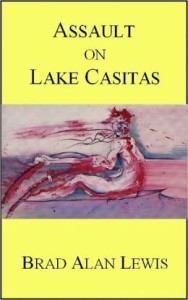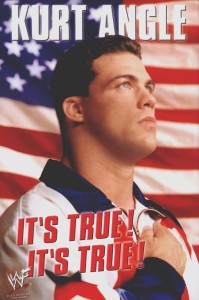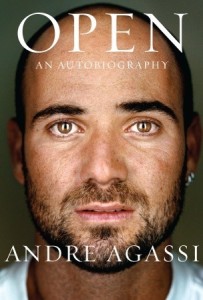- Skip/hit the gym 100 times?
- Study for 100 hours?
- Put off contacting a friend 100 times?
- Have 100 ‘quick pints’ after work?
- Spend 100 hours browsing the internet?
- Make an exception 100 times?
Put into context like this, the choice becomes more stark: your decision’s part of a larger whole that’s going to affect your life, one way or the other. That still doesn’t mean that the ‘bad’ decision (AKA the thing you want to do) is wrong, or that you shouldn’t do it – but it’s a better way of looking at the decision.
But I’ll go you one further. Next time you’re presented with an apparently-small choice, consider how many more times – in your life – you’re realistically going to have that choice at all. For me, going wrestling (Olympic freestyle not WWE) is the perfect example: the club where I do it has one good, serious, leave-you-on-the-floor class a week, and it’s on Wednesday night. One Wednesday in four is deadline day at my job, so it’s not realistic to imagine that I’ll ever get to leave on time to get to go to wrestling that night. So the most times I can expect to get a decent wrestling class done over an entire year is 39, and that’s without even factoring in holidays, illness, or times when life gets in the way. And 39 classes, if you want to be any good at wrestling, is nothing.
Since I started thinking this way, I’ve skipped a lot less wrestling classes.
But I’ll go you one further.
One day, the circumstances of your life will change, and probably sooner than you think. You’ll change jobs or meet somebody you want to spend all your time with or have a baby, and suddenly, you won’t have any choices at all. It’s going to happen, and it’s tough to tell when.
The point is, amplifying the results of that one action – however small – make it tougher to make excuses. And it’s not an unrealistic thing to imagine: almost everything you do is habit, and the more times you avoid bad actions and chase good ones, the more ingrained good habits will be.
Self-discipline is killed by exceptions. Avoid the exceptions, and the results will come.
[Hat tip: PeaceH from Reddit, whose was nice enough to let me use elements from this post when I asked. Read his other stuff.]
]]>
Assault On Lake Casitas
Brad Alan Lewis
It’s possible you’ve never heard of rower-turned-prolific-author Lewis, but that needs to change. Firstly, he took the hardest of all possible routes to the Olympics – after falling short in the single scull trials and being passed over in selection for the doubles, he did everything from training alone to scrounging his own boat en route to the 1984 finals. Secondly, he’s an incredibly thoughtful, honest writer – it’s fairly tricky to get across the physical and psychological horrors of rowing a legitimate all-out 2k via words on a page, but he somehow manages it. And thirdly, there’s a wealth of training advice here, on everything from sets and reps to psychology and ‘shadow rowing.’ Once you’re done with this one, you’ll want to move onto Wanted: Rowing Coach, and Lido For Time, Lewis’ annotated book of pre-Olympic workouts – they’re both inspiring reading, and the second one even has a recipe for waffles.
It’s true, it’s true
Kurt Angle
Yes, really. You might know Kurt Angle as the star-spangled-singlet-wearing WWE star who once attacked Vince McMahon with a milk cannon – or you may just not know him at all – but pre-professional wrestling, Angle was a legitimate monster on the mat, ultimately winning Olympic gold with two fractured cervical vertebrae and a pair of herniated discs in his neck. His book’s worth reading for the chapter on his Olympic training alone, including his leg workouts ‘I’d take 80lb dumbbells, squat down and jump up as high as I could, 50 to 100 times,’ his training under Dan Gable – he once wrestled one ‘match’ that lasted 70 minutes – and the mornings he’d do hill sprints carrying his manager. Yes, he occasionally comes across as arrogant – especially in the second half of the book – but the way he applied the same Olympian work ethic to succeeding in the WWE is an object lesson in competence spanning fields. He also trained at Foxcatcher with Dave and Mark Schultz, and his thoughts on them are worth your time.
Open
Andre Agassi
Fine: Agassi isn’t really most famous for his Olympic gold, even though he took it as part of the impossibly-rare career ‘golden slam’ – winning it alongside all four major opens, a feat which only Nadal has matched among the men’s field. But you should read his book anyway, because it’s a terrifying account of just what it takes to succeed at that level, from hitting 1,000 balls every morning under the watchful eye of an obsessive father, via the ultra-competitive environment of a teen tennis academy, to the reinvention via strength and conditioning that it takes to succeed on the main tour. Even if tennis does nothing for you, the pain and perseverance on display in this book ought to give you a newfound respect for its athletes – and the combination of strategy, psychology, nutrition, conditioning and sheer, awful repetition it takes to succeed might give you pause next time you see what you think is an overpaid athlete throwing a strop. Oh, and there’s a lesson in here for Black Swan fans and pushy, too: all of Agassi’s siblings underwent similar training, and only Agassi made it – after nearly dropping out of tennis. Success is never guaranteed.
]]>


